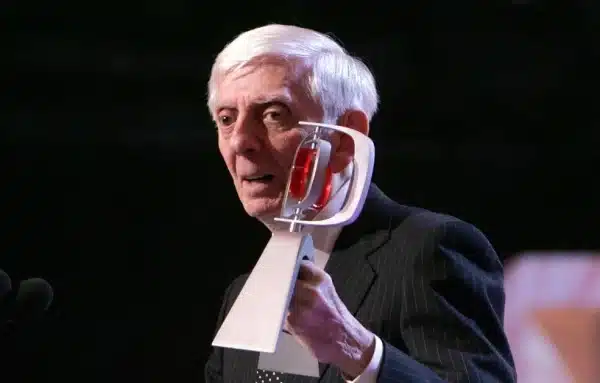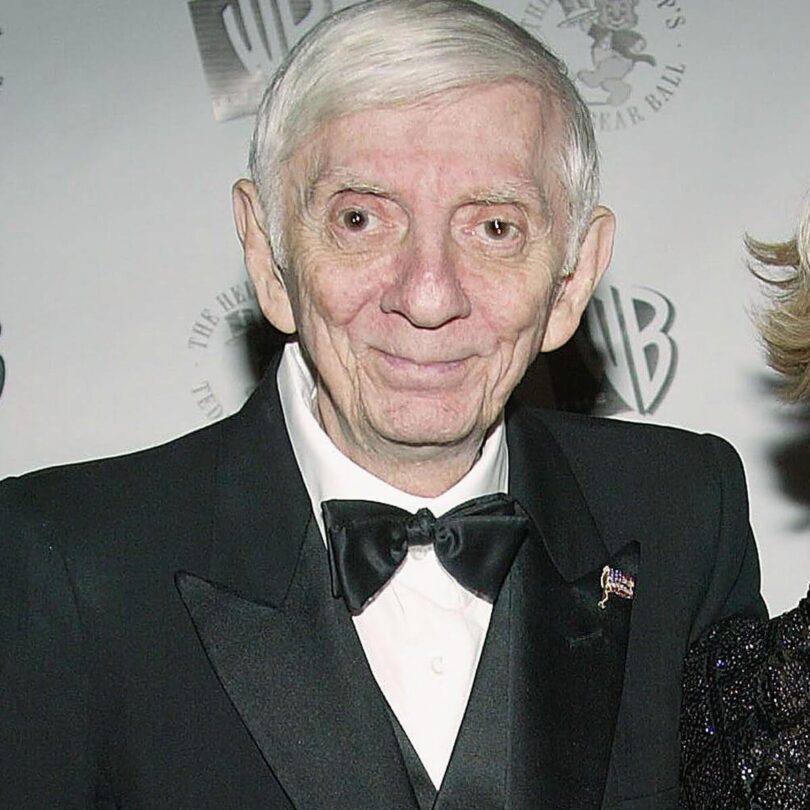Aaron Spelling (April 22, 1923 – June 23, 2006) was an American film and television producer and occasional actor. His productions include TV series such as Family (1976–1980), Charlie’s Angels (1976–1981), The Love Boat (1977–1986), Hart to Hart (1979–1984), Dynasty (1981–1989),
Beverly Hills, 90210 (1990–2000), Melrose Place (1992–1999), 7th Heaven (1996–2007), and Charmed (1998–2006). He also produced The Mod Squad (1968–1973), The Rookies (1972–1976), and Sunset Beach (1997–1999). Through Spelling Television, he holds the record as the most prolific TV producer in American history, with 218 credits.
Table of Contents
Aaron Spelling Net Worth
Aaron Spelling had a net worth of $600 million at the time of his death. He owned a Holmby Hills mansion known as “The Manor” or “The Spelling Manor.” Aaron purchased the property, previously owned by Bing Crosby, in 1988 and demolished the home to build a 123-room, $47 million estate.

“The Manor” is the largest single-family home in California. In 2008, Spelling’s widow listed the mansion for $150 million. Petra Ecclestone bought it for $85 million in 2011, and it was sold for $119.7 million in 2019.
Early Life
Aaron Spelling was born in Dallas, Texas to David Spelling and Pearl Spelling (née Wald), Russian Jewish immigrants. His father worked as a tailor and changed their surname from Sperling to Spelling after emigrating. Pearl had been previously married to Sam Seltzer, who was murdered in 1911. Spelling was the youngest of five children, with two older brothers, Sam (1916–2001) and Daniel Spelling (1921–2009), and two older half-siblings, Max and Becky Seltzer Giller.
At age eight, he lost the use of his legs due to anti-Semitic bullying but made a full recovery. Spelling served in the United States Army Air Corps during World War II and graduated from Southern Methodist University in 1949, where he was a cheerleader.
Career
In 1953, Aaron Spelling made his acting debut in the film noir “Vicki” and appeared on “Dragnet” and “I Led Three Lives.” He sold his first script in 1954 to Jane Wyman Presents and appeared in “I Love Lucy” and “Alfred Hitchcock Presents.” From 1956 to 1961, he worked as a writer for “Zane Grey Theatre” and became a producer in 1960.
In 1965, Spelling created Spelling Entertainment, later collaborating with Danny Thomas and Leonard Goldberg. He produced long-running shows like “Charlie’s Angels,” “Dynasty,” and “Beverly Hills, 90210.”
Personal life
Aaron Spelling married actress Carolyn Jones (best known as Morticia Addams on “The Addams Family“) in 1953, and they divorced in 1964. He wed Carole “Candy” Marer in 1968, later known as Candy Spelling.

They welcomed daughter Tori Spelling on May 16, 1973, and son Randy Spelling on October 9, 1978. Spelling often cast his children in his projects, and Tori Spelling gained international fame for her role as Donna Martin on “Beverly Hills, 90210.”
What was the cause of death of Aaron Spelling?
On June 23, 2006, Aaron Spelling died at The Manor, his estate in Holmby Hills, Los Angeles, from complications of a stroke he suffered five days prior.
Conclusion
Aaron Spelling’s life story is one of remarkable success and enduring influence in the television industry. His vast estate and the legacy of his productions continue to impact the entertainment world.
FAQs about Aaron Spelling
- What was Aaron Spelling’s most successful show?
- Among his many successful productions, “Charlie’s Angels” and “Dynasty” are often cited as his most iconic shows.
- Did Aaron Spelling have any other business ventures apart from television?
- While Spelling was primarily known for his television productions, his business ventures largely remained within the entertainment industry.
- How has Aaron Spelling’s work influenced modern television?
- Spelling’s work laid the groundwork for modern TV dramas and soap operas, influencing storytelling and production values.
- Did Aaron Spelling receive any posthumous awards?
- Yes, he was posthumously honored at the Primetime Emmy Awards and continues to be recognized for his contributions to television.
- What was Aaron Spelling’s approach to television production?
- Spelling was known for his keen eye for storytelling and his ability to tap into the public’s interests,








